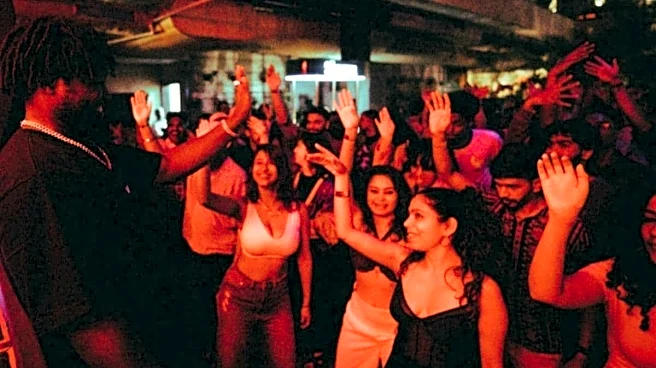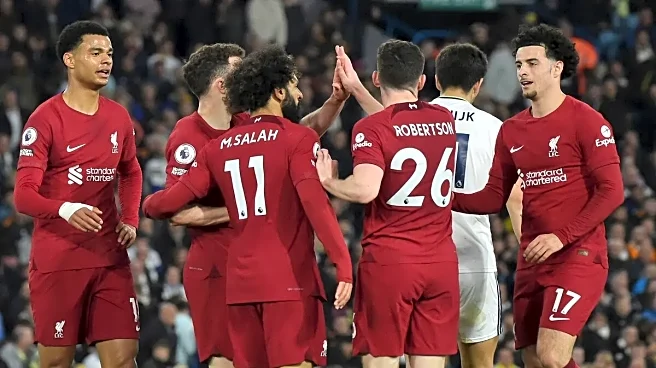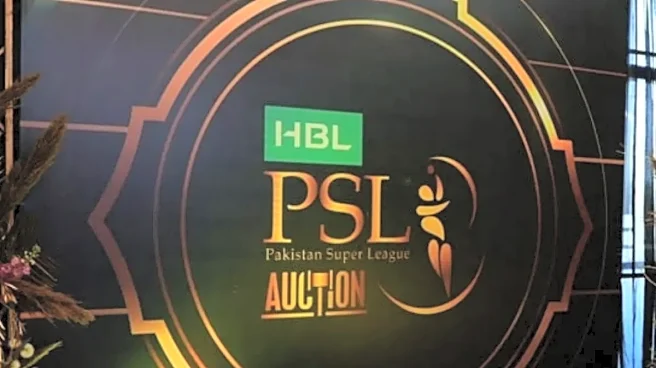Five years ago, in the thick of the pandemic, when isolation pushed people to seek connection through screens, a small community-driven experiment in music discovery was born. Focus Group Radio (FGR) started in 2020 as an online radio initiative by punk rock artist and music obsessive Vidyuth S. The idea was deceptively simple: weekly “listening parties” inspired by the spirit of ’90s UK pirate radio, streamed alongside a Discord chatroom. What began as messy folders of mp3s curated around genres, countries, and artists soon blossomed into one of India’s most distinct music collectives.
Today, as FGR completes half a decade, it stands tall as a hub for “weird music for weird people,” driven not by algorithms or trends, but by curiosity, community,
and a radical respect for the artist. Over the years, it has birthed two signature IPs, toured clubs and festivals across India, and carved a reputation for being unflinchingly authentic.
African Music Exploration: The Beating Heart of FGR
The crown jewel in FGR’s journey has been African Music Exploration (AME), launched in March 2022. Unlike typical “Afro” themed lineups that treat the sound as an aesthetic, AME has built itself on digging deep into six decades of music across the continent. The sets begin with timeless jazz and funk records from Ethiopia, Nigeria, Ghana, Senegal, and Cameroon before flowing into Afro disco grooves and, finally, pulsing contemporary club genres like GQOM, Kuduro, Singeli, SOCA, Dembow, and Dancehall.
“The selections at AME are purely informed by what we want you and the room to feel like,” co-founder Vidyuth explains. “By playing long and intimate sets, we promise to twist and turn you emotionally while shapeshifting the room sonically. Expect an unpredictable and eclectic mix of sounds that will keep you guessing and dancing all night long.”
AME has since traveled extensively, with over 15 shows hosted across Social + antiSOCIAL outlets in Chennai, Indiranagar & Koramangala in Bangalore, Hyderabad, and Mumbai, along with appearances at landmark spaces like The Loft and Juna in Goa, Auro in Delhi, and Black Orchid in Chennai.
In just three years, AME has become more than a gig series — it is a cultural movement spotlighting underrepresented African sounds in India.
Collaboration and Representation
As AME grew, so did its collaborations. The collective hosted UK-based presenter and radio host Tash LC on a four-city India tour, invited Ghanaian rapper Bryte known for blending African lyrics with UK club sonics, and welcomed Nigeria/UK-based DJ Juba to their stage. Alongside these global voices, FGR curated strong Indian lineups featuring artists like Daisho, Marc Morais, Double T, and more who resonated with the ethos of discovery and depth.
Programming head Sharan Nichani, who also leads the Focus Group Sound System with Vidyuth, insists the philosophy is about honesty. “We’ve seen more artists discover the sound, more listeners dig deeper, and more lineups (not always thoughtfully) throw in the word ‘Afro’ like it’s an aesthetic. We’re not here to gatekeep — but we’re definitely here to stay honest. That means spotlighting the artists actually making the music, not just remixing it into Instagram-friendly edits. It means bringing down people like Juba, Tash LC, and Bryte to play in India, because representation can’t just be theoretical. Just as importantly, it means championing local artists who aren’t chasing slots but are building scenes with care, integrity, and curiosity.”
Dans Punk: Weird Music For Weird People
Parallel to AME, FGR has been developing another IP — Dans Punk. Conceptualised by Sharan Nichani, Dans Punk celebrates experimental, left-of-centre club sounds: breaks, grime, post-club, dembow, and leftfield electronica. These nights are intentionally misfit gatherings, rejecting the culture of “big headliners” in favour of giving the dancefloor to the right kind of “wrong” people.
Importantly, Dans Punk follows a strict no-camera policy, creating a safe space where dancers can lose themselves without performance pressure. “It’s not serious music, but it’s also not unserious. It’s simply what happens when you hand the aux to people who thrive in curiosity,” says Sharan.
The Five-Year Anniversary Tour
To mark five years, FGR took their IPs — African Music Exploration, Dans Punk, and Chutney Soca (an audio-visual exploration presented at Bangalore’s Museum of Art and Photography) — on a celebratory tour through July and August 2025. The tour traversed Pondicherry, Chennai, Bangalore, Hyderabad, and Goa, connecting with communities that have long nurtured alternative and underrepresented cultural movements.
Magnetic Fields Showcase
FGR’s philosophy found one of its strongest platforms at Magnetic Fields Festival in December 2024. At the “Dungeon” stage, FGR presented a marathon four-hour African Music Exploration showcase with UK-based DJ and festival organiser Poly-Ritmo. The set moved seamlessly through six decades of African music, tracing the evolution of rhythms and their diaspora connections while blending traditional sounds with modern underground club culture. To commemorate the showcase, FGR also released a limited-edition merch collection with Magnetic Fields, available exclusively at the festival.
Staying True to the Spirit
Despite its growth, FGR refuses to frame its journey in terms of metrics or commercial success. The collective sees its fifth anniversary not as a corporate milestone but as a reminder of why they started. “Community, curiosity, and respect for artists — that’s why we’re here,” says Vidyuth.
For those who’ve been tuning in since the early days of messy mp3 folders and Discord streams, the journey feels like homegrown history. For newer fans, it’s an invitation to step into a space where discovery takes precedence over algorithms, and where dancefloors are transformed by sounds that surprise, challenge, and liberate.
As Focus Group Radio steps into its next chapter, it remains unapologetically itself: weird music for weird people, fuelled by love, care, and an unshakable belief in the radical act of putting music first.



/images/ppid_a911dc6a-image-177083903258342419.webp)





/images/ppid_59c68470-image-177083752855419301.webp)

/images/ppid_59c68470-image-177083752668871927.webp)


/images/ppid_a911dc6a-image-177083556748629873.webp)
/images/ppid_a911dc6a-image-177083563836656334.webp)